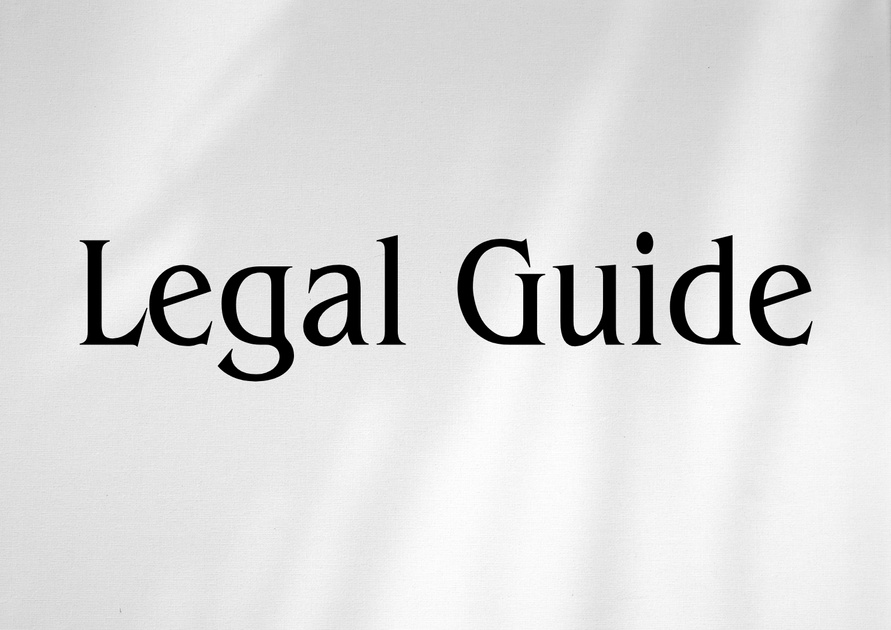Introduction to Arbitrator Challenge and Replacement in the UAE
As the United Arab Emirates (UAE) solidifies its position as a global hub for business and commerce, the mechanisms underpinning its legal dispute resolution frameworks continue to evolve. Arbitration remains a favored route for resolving commercial disputes, offering efficiency, neutrality, and enforceability. However, the integrity of arbitration depends heavily on the impartiality and independence of arbitral tribunals.
With the introduction of Federal Law No. 6 of 2018 on Arbitration (the “UAE Arbitration Law”) and recent updates—such as Cabinet Resolution No. 57 of 2018—there has been a marked shift in how parties can challenge and replace arbitrators in the UAE. These developments are particularly significant for businesses operating in sectors where arbitration clauses are prevalent, such as construction, energy, financial services, and international trade. For executives, HR managers, and legal practitioners, understanding these provisions is critical to safeguarding their clients’ or companies’ interests and ensuring effective legal compliance.
This article offers a comprehensive analysis of the challenge and replacement of arbitrators in the UAE, scrutinizing the relevant legal provisions, practical strategies for successful challenges, recent legal updates for 2025, and risk mitigation pathways for organizations. The goal is to empower stakeholders with actionable, expert insights suitable for high-stakes decision-making.
Table of Contents
- Legal Framework for Challenge and Replacement of Arbitrators in the UAE
- Key Grounds for Challenging an Arbitrator
- Procedural Roadmap: From Challenge to Replacement
- UAE Law 2025 Updates: Comparative Overview
- Case Studies and Practical Implications
- Risks of Non-Compliance and Compliance Strategies
- Conclusion: Best Practices and Forward-Looking Perspectives
Legal Framework for Challenge and Replacement of Arbitrators in the UAE
Legal Sources and Official Provisions
The modern legislative foundation for arbitration in the UAE is established by Federal Law No. 6 of 2018 (UAE Arbitration Law). This statute aligns local practices with internationally accepted standards, particularly drawing from the UNCITRAL Model Law on International Commercial Arbitration. Complementary government instruments, such as Cabinet Resolution No. 57 of 2018, further clarify arbitral procedures in the UAE (source: UAE Ministry of Justice, UAE Legal Portal).
Relevant articles in the UAE Arbitration Law (notably Articles 14-20) outline criteria for arbitrators’ independence and neutrality, eligibility requirements, grounds for their removal or replacement, and the prescribed challenge mechanisms.
Impartiality and Independence as Core Principles
The essence of a fair arbitral proceeding is tied to the impartiality and independence of the tribunal. According to Article 10 of the UAE Arbitration Law, any person may be appointed an arbitrator, provided they are fully competent, of age, and not subject to any legal disqualification. Nevertheless, Article 14 requires arbitrators to disclose circumstances that may create justifiable doubts as to their impartiality or independence—both before and throughout the proceedings.
Recent Developments and Policy Direction
Reflecting global best practices, the UAE has embraced ongoing legislative updates aimed at strengthening confidence in local arbitration institutions, boosting foreign direct investment, and providing recourse for indisputable challenge mechanisms. For 2025, clarification amendments have been issued by the Ministry of Justice, providing more structured timelines and bespoke procedures for complex, multi-party disputes.
Key Grounds for Challenging an Arbitrator
Legal Criteria under Federal Law No. 6 of 2018
Article 15 of the UAE Arbitration Law articulates the circumstances in which an arbitrator may be challenged:
- Justifiable Doubt: Where evidence or circumstances exist that raise serious doubt regarding the impartiality or independence of the arbitrator.
- Failure to Disclose: An arbitrator’s omission to make required disclosures regarding potential conflicts.
- Legal Disqualification: Any statutory factors such as incapacity, conviction of crimes relating to honor or integrity, or involvement with a party that may compromise neutrality.
The law explicitly provides that a party may not challenge an arbitrator appointed by them, except for reasons discovered post-appointment or grounds unknown at the time of their appointment.
Practical Guidance: How to Assess Arbitrator Conflicts
For in-house counsel and legal advisors, it is essential to apply rigorous due diligence. Recommended best practices include:
- Requesting enriched disclosures at the outset and during proceedings;
- Performing background and affiliation checks using UAE government portals and publicly available court or arbitration records;
- Engaging impartial third-party experts to evaluate potential conflicts in complex, cross-border situations.
A visual aid can be inserted here: Arbitrator Conflict Assessment Checklist—suggesting placement of a table listing major checks, e.g., prior professional relationships, shareholding, disclosed interests, etc.
Procedural Roadmap: From Challenge to Replacement
Challenge Process (Step-by-Step)
The UAE Arbitration Law offers a clear, sequential process for challenging arbitrators (source: Article 16). This process is designed to prevent frivolous objections and promote speedy resolution.
- Filing the Challenge: The challenging party must submit a written notice, explaining the grounds, within 15 days of becoming aware of the circumstances warranting the challenge.
- Initial Decision by Arbitral Tribunal: The challenged arbitrator may withdraw, or the co-arbitrators may agree to removal. If no withdrawal occurs, the tribunal or the competent arbitration institution decides within 15 days.
- Recourse to the Court: Should the challenge be denied, the objecting party may approach the UAE Court of First Instance (for onshore arbitrations) within 15 days of the decision. The court is mandated to deliver a resolution within 10 business days; notably, arbitration proceeds unless expressly stayed (Article 17).
- Replacement of Arbitrator: Upon a successful challenge, a substitute arbitrator is appointed in accordance with the agreed appointment procedure or, failing agreement, per institutional or legal norms.
Process Flow Diagram (Suggested Visual)
Insert a process flow diagram here illustrating the four key steps: Challenge Notice → Tribunal Decision → Court Application (if needed) → Replacement/Continuation.
Strategic Recommendations for Businesses
Organizations should develop internal protocols for swiftly identifying and acting upon grounds for challenge, preserving evidence, and engaging with external counsel or arbitration administrators when urgent action is needed. Timeliness and documentation are critical; untimely or unsupported challenges may be summarily rejected.
UAE Law 2025 Updates: Comparative Overview
Key Legal Updates in 2025
The UAE Ministry of Justice’s 2025 amendments introduce refined procedures affecting arbitrator challenges, particularly in the context of multi-party and institutional arbitrations. Notable updates include:
- Explicit timelines for appointment and challenge actions;
- Expanded disclosure obligations for arbitrators;
- Clarifications regarding removal in cases of repeated challenge by the same party;
- Additional powers for arbitral institutions to fast-track challenges involving clear evidence of bias.
Comparative Table: Old vs. New Provisions
| Issue | UAE Arbitration Law (2018) Old Version | 2025 Updates |
|---|---|---|
| Time to File Challenge | 15 days from knowledge of grounds | Remain the same |
| Disclosure Requirements | General; at appointment and if circumstances arise | Must now update during proceedings; expanded list of required disclosures |
| Court Involvement | File at Court of First Instance; 10 days to decide | Court empowered to issue interim measures to avoid arbitration deadlock |
| Institutional Role | Only if parties agreed on an institution | Explicit power to expedite removal if bias is clearly evidenced |
| Multi-party Provisions | Silent or limited | New rules for multi-party disputes and group challenges |
Policy Rationale and Institutional Guidance
These amendments are direct responses to consultation with the legal community, arbitration bodies, and international investors. The aim is to enhance procedural predictability, streamline removal of conflicted arbitrators, and maintain alignment with evolving international standards. Official commentaries are available on the UAE Ministry of Justice’s portal.
Case Studies and Practical Implications
Case Study 1: Construction Sector Dispute (Hypothetical)
A UAE-based contractor disputes a termination against an international project owner. Mid-arbitration, it is revealed that one of the appointed arbitrators had advised the owner’s parent company two years earlier on a similar project. Despite the arbitrator’s assertion of no ongoing relationship, the contractor files a challenge based on perceived lack of impartiality.
Outcome: The challenge, filed within the 15-day window, was first reviewed by the arbitral tribunal. Following unsuccessful removal, the UAE Court of First Instance found reasonable grounds to question impartiality, removed the arbitrator, and mandated the appointment of a substitute. Arbitration resumed without delay, reinforcing the efficacy of the challenge procedure.
Case Study 2: Financial Services Arbitration (Actual Example)
In 2023, a banking dispute administered under Dubai International Arbitration Centre (DIAC) rules saw a party challenge an arbitrator due to undisclosed indirect shareholding in a counterparty affiliate. Following institutional review, the arbitrator was replaced—demonstrating the importance of robust disclosure and institutional autonomy, as reflected in the 2025 amendments.
Lessons Learned for Executives and Legal Managers
- Disclosures must be dynamic and updated as new relationships or circumstances arise;
- Corporations should employ compliance teams to proactively vet arbitrator backgrounds;
- Early action and clear documentation are paramount for successful challenges.
Risks of Non-Compliance and Compliance Strategies
Legal and Commercial Risks
- Procedural Invalidity: Failure to adhere to challenge timelines or evidentiary requirements may render the arbitration award susceptible to annulment under Article 53 of the UAE Arbitration Law.
- Reputational Damage: Ongoing proceedings with tainted tribunals can erode counterparty trust and long-term business relationships.
- Regulatory Sanctions: Arbitrators and parties found to have acted in bad faith may face regulatory action or blacklisting from UAE arbitration institutions.
Compliance Checklist (Suggested Table Visual)
| Compliance Step | Responsible Party | Recommended Procedure |
|---|---|---|
| Conflict Checks | Legal/Compliance Teams | Conduct at appointment and periodically throughout the proceedings |
| Disclosures | Arbitrator | Submit written disclosures on all direct/indirect relationships and update as needed |
| Documenting Grounds | Challenging Party | Maintain detailed records and supporting evidence |
| Challenge Notice | Legal Counsel | Draft in line with Article 15 requirements; submit within legal timeframe |
| Replacement Process | Tribunal/Institution | Follow statutory and institutional timelines for substitution |
Best Practice Recommendations
- Train legal and HR teams on emergent UAE arbitration compliance obligations;
- Establish escalation protocols for prompt action on potential conflict matters;
- Engage in regular legal review with UAE law specialists, especially when drafting or revising arbitration clauses.
Conclusion: Best Practices and Forward-Looking Perspectives
The UAE’s legal landscape for challenging and replacing arbitrators continues to evolve, with the 2025 updates signalling a mature, investor-friendly jurisdiction attuned to international best practices. Businesses, executives, legal teams, and HR managers must stay vigilant in their compliance mechanisms, proactively conduct conflict checks, and keep pace with procedural reforms.
The practical ability to challenge an arbitrator—anchored in transparent legislative frameworks—bolsters not only procedural integrity but also investor confidence in the UAE’s arbitration regime. Organizational resilience will increasingly depend on the agility of stakeholders to understand and apply these legal updates, balancing rigorous compliance with strategic flexibility.
Looking ahead, as the UAE deepens its commitment to high standards in alternative dispute resolution, companies that invest in robust legal education and workflow optimizations will be best positioned to navigate disputes efficiently and uphold reputational capital.



